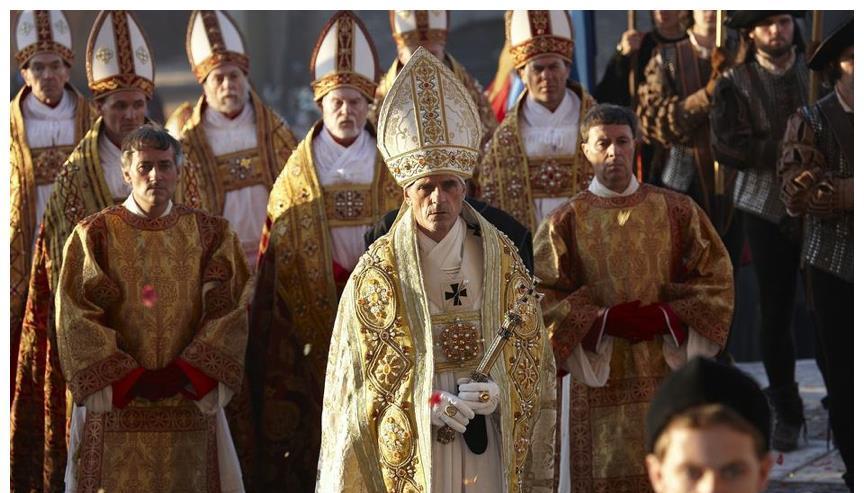Historically, in a narrow sense, from the fourth century AD onwards, The barbarians of Europe began to migrate. By 476 AD, the Germanic leader Odoasse deposed the Western Roman Emperor Romulus Augustus, and the Western Roman Empire collapsed.
The demise of the Western Roman Empire marked the disintegration of slavery and the embryonic feudal system in ancient Western Europe, and Western European society began to enter the Middle Ages. It sounds good, but why has there always been a saying that it was "dark middle ages"? Where was the darkness in the Middle Ages? Was the Middle Ages really dark?
And follow the author to find out.

In the Middle Ages, that is, from the fall of the Western Roman Empire to the great geographical discoveries of the 15th and 16th centuries, new shipping routes opened up the history of this period.
Known as the "Dark Ages", the Middle Ages were first proposed by Petrarch in the Italian Renaissance and later widely used. Why is it called the "Dark Ages"?
first
After the fall of the Western Roman Empire, various barbarian tribes established states. The original classical culture was replaced by a religious medieval culture. The invasion of barbarians has caused the original prosperity of culture to wither, and cultural and educational undertakings have been lacking, and only Christian priests and nuns have the opportunity to learn culture with religious overtones. The originally open and vibrant Greco-Roman culture was replaced by a dogmatic, restrictive church culture that constrained the minds of the people and rejected science. In the field of thought, the repression of human personality, the people are indoctrinated to pursue the happiness of the next life, can not enjoy pleasures, born only for the atonement of sins and other negative concepts.
second
, is the clerical kingship struggle. As mentioned earlier, in the Western European Middle Ages, the power of the church was great, such as the Frankish emperor Pepin who sacrificed soil to lay the foundation of the papal states. The church owns a large amount of land and does not bear taxes, and the population on the land also becomes the dependent peasant of the church with the land, coupled with the collection of various names, the church can be described as rich and oily, and at that time, the royal power of western European countries was not as highly centralized as in ancient China, such as the political system of feudal lords and vassals, which is the embodiment of incomplete political structure, which led to many scattered political relations, so that "the vassals of my vassals are not my vassals", and the state lacked a power center. The king largely needed to cling to the Church for his consolidation of his rule, i.e., the king was the secular supreme ruler and the Church was the supreme ruler of theocracy. In this context, the people are caught between the two, exploited and oppressed.
third
There is a saying that the "Dark Ages" refers to the Christian period when Jesus died and his return, because there was a need to wait, and there was also a faint hope, so it was called "darkness".
fourth
In the Middle Ages, the so-called city at that time was actually quite sloppy, poultry ran all over the streets, feces were everywhere, and the health hazards were very large, and the frightening Black Death broke out between 1348 and 1451. The death rate was staggeringly high, and Europe's population was almost halved. The image of the "Dr. Crow" (who wears a long canvas coat soaked in medicinal spices to prevent infection, a bird's beak mask with glass glasses, a bird's beak stuffed with spice herbs, a hat, and a cane) is also chilling. The stench emitted by the corpses and the billowing black smoke emitted by the burning corpses all made people feel desperate.
But was medieval Western Europe really the "Dark Ages"? Not quite.
In fact, in the 19th century, scholars have begun to use the term cautiously, generally referring to the early Middle Ages. Because, in the Middle Ages, economically, most countries in Europe actually grew slowly, and the growth rate accelerated in the 10th and 15th centuries AD. Demographically, the population has undergone changes that have declined and grown slowly, but in terms of general trends, the population has risen. Culturally, the Middle Ages produced three Renaissances, namely the Carolingian Renaissance in the 8th century, the 12th-century Renaissance, and the familiar Italian Renaissance. All of this is enough to show that medieval Western Europe was not really so bad.
The claim that the fall of the Western Roman Empire brought Western Europe into the Dark Ages is actually somewhat extreme. We should see that it was precisely because of the Middle Ages that there is now Western Europe. The development of history has its own laws.